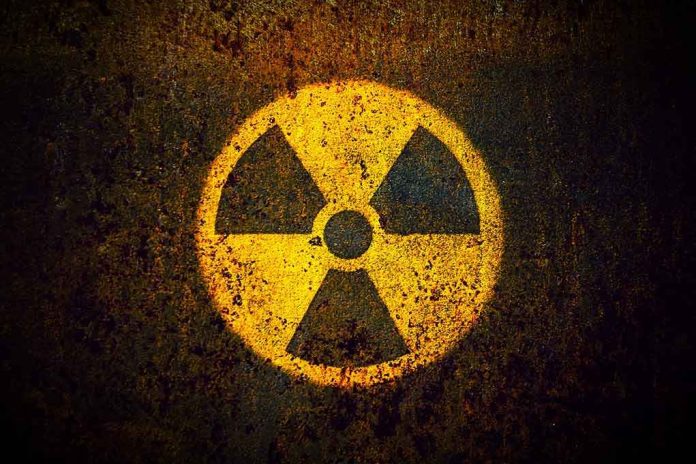
Russia’s deepening grip on Kazakhstan’s energy sector signals a new era of foreign influence that should alarm every American who values energy independence and constitutional sovereignty.
Story Snapshot
- Russia, under increasing Western sanctions, has secured a $15 billion contract to build Kazakhstan’s first nuclear power plant by 2035, reinforcing Moscow’s regional leverage.
- Kazakhstan, the world’s largest uranium producer, is shifting away from coal but faces growing dependency on Russian technology and financing.
- The project’s geopolitical dynamics pit Russian and Chinese influence against Western interests, raising concerns about American security and economic interests in Central Asia.
- Public support in Kazakhstan is high, yet historic fears and environmental risks tied to nuclear energy persist, highlighting the need for transparent, accountable oversight.
Russia’s Strategic Expansion in Central Asia’s Energy Sector
On August 8, 2025, Russian state nuclear firm Rosatom broke ground on Kazakhstan’s first commercial nuclear power plant near Ulken in the Almaty region. This ambitious project features two VVER-1200 reactors, aiming for a 2.4 gigawatt output by 2035. For Russia, this is not just another contract—it is a bold play to expand its influence in Central Asia, exploiting Kazakhstan’s quest to move beyond coal and modernize its grid. While American policymakers once sought to limit Russian energy dominance, this development highlights the ongoing weakness of Western deterrence and the growing risk of Russian leverage over a critical uranium-rich nation.
Kazakhstan’s government, eager to diversify energy sources and reduce pollution, has justified the plant by pointing to rolling blackouts and rising demand. Yet the country’s reliance on a Russian-built and potentially Russian-financed facility puts its sovereignty—and by extension, regional stability—at risk. Ongoing Western sanctions have made Russian financing precarious, but Moscow’s desperation for international contracts is matched by its willingness to use energy infrastructure as a geopolitical tool. American interests—from energy security to countering authoritarian influence—are clearly at stake, as the Kremlin deepens its footprint in a region pivotal for global uranium supply and energy trade.
Geopolitical Tensions: The China Factor and Erosion of Western Influence
Kazakhstan’s energy pivot is not occurring in a vacuum. China’s state nuclear company CNNC and European firms like France’s EDF were also in the running to supply technology and financing. Ultimately, Rosatom’s selection underscores Russia’s enduring sway, but experts warn that Chinese influence may yet become decisive, especially if Moscow’s financing falters. This competition between two authoritarian powers for control over Kazakhstan’s critical infrastructure leaves Western interests sidelined. American policymakers should be concerned that the United States and its allies have little direct leverage over this emerging nuclear hub—particularly as Kazakhstan positions itself as a regional energy exporter and a model for other countries contemplating nuclear power.
While Kazakhstan’s leaders tout the project as a step toward modernization, their balancing act between Russia and China reveals the deepening marginalization of Western, pro-liberty influence in Central Asia. The country’s decision to hold a national referendum—yielding over 70% support for nuclear development—may reflect domestic energy concerns, but it also demonstrates how public opinion can be shaped in a region where state narratives dominate and dissent is often muted.
Economic and Social Impacts: High Costs and Lingering Fears
The nuclear plant brings the promise of jobs, infrastructure, and $1 billion in local investment, but the broader economic implications are more troubling. At $14–15 billion for the plant alone, Kazakhstan is placing a massive bet on a partnership with a sanctioned Russian state enterprise. This raises the specter of debt dependency and exposes the country to risks associated with opaque contracts and shifting geopolitical winds. For rural communities near Ulken, the prospect of economic growth comes with real concerns about safety and environmental legacy. Memories of Soviet-era nuclear testing at Semipalatinsk—one of history’s most notorious test sites—fuel public skepticism, demanding vigilance and transparency that have not always been hallmarks of Russian-backed projects.
American Strategic Concerns: Why This Matters at Home
Kazakhstan’s nuclear ambitions, while domestically popular, represent a textbook case of how authoritarian states weaponize energy infrastructure for influence. The United States, already grappling with the fallout of past globalist energy policies and the undermining of constitutional priorities, now faces the prospect of being shut out of a region that controls vast uranium resources and sits at the crossroads of Eurasian energy trade. For conservative Americans, this development is a stark reminder that unchecked foreign entanglements and the erosion of national sovereignty abroad have consequences for our security, values, and economic well-being.
Russia-backed construction begins on Kazakhstan’s first nuclear plant in the Almaty region. A $15B project by Rosatom, marking a new industrial milestone for the uranium-rich nation.
Read: https://t.co/slNmFqQEnQ
— Red Lantern Analytica (@RLAnalytica) August 8, 2025
As Russia and China jostle for control, and Kazakhstan leverages their rivalry, American policymakers must recognize the dangers of complacency. Energy independence, national sovereignty, and the defense of liberty require vigilance—not just at home, but in every corner of the world where authoritarian powers seek to expand their reach. The story unfolding in Kazakhstan should serve as a wake-up call for renewed American engagement, grounded in the principles of limited government, transparency, and respect for the rule of law.
Sources:
Kazakhstan breaks ground on first nuclear power plant
Kazakhstan starts construction of first nuclear power plant
Kazakhstan launches preliminary works at first nuclear power plant
Kazakhstan: China, Russia, And The Diplomacy Of Nuclear Power





